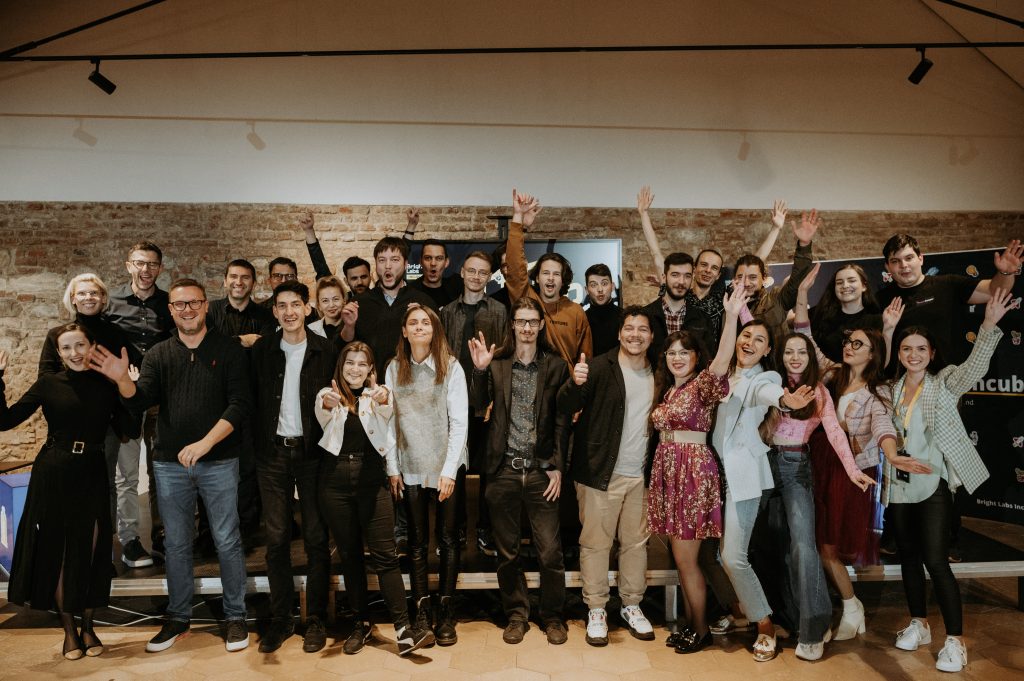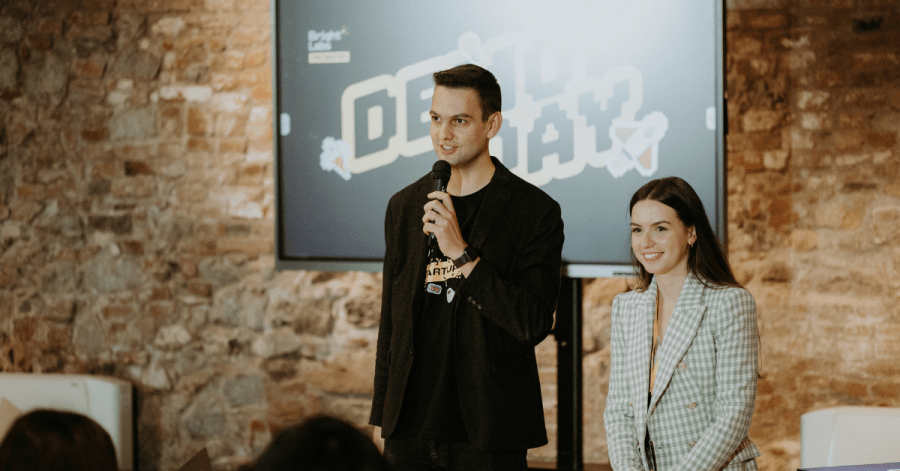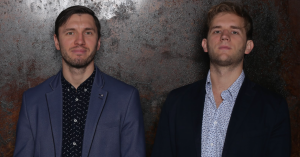More than 100 tech founders, mentors, community leaders, tech professionals, and startup enthusiasts were brought together to build on an idea that appeared almost impossible at that time: develop a local startup ecosystem that will put the city of Oradea on the regional and global startup ecosystems map. Two years later, the ecosystem seems to have laid a strong foundation and it’s growing rapidly, as we understood from our interview with David Achim – the person who leads Make IT in Oradea initiatives, including the Bright Labs Incubator.
Most tech startup ecosystems shape up due to favorable conditions. Few have deliberate strategies in place to nurture innovation and support entrepreneurship. Oradea, situated in the heart of Central and Eastern Europe, in the Nort-Western part of Romania, is one of the cities where both private and public stakeholders have aligned and joined forces along the goal of building a thriving startup ecosystem. One of the offsprings of this partnership is Make IT in Oradea, a non-profit entity that organizes initiatives in support of the local, as well as the regional entrepreneurship scene.
Home to more than 220,000 people and around 11,000 active enterprises, Oradea is a small city with big ambitions, including becoming an innovative hub in CEE. In a mirroring fashion, Make IT in Oradea, founded by ADLO (the Local Development Agency Oradea), Mobiversal, Paymo, Smartware, Helion, and ROETCO, together with national partner Orange Romania, aims to help build the city’s startup ecosystem.
A substantial part of these startups is expected to go through the organization’s flagship program, the Bright Labs Incubator, a unique 6-month program for first-time tech entrepreneurs from Central and Eastern Europe. As the program approaches its third edition, The Recursive caught up with Executive Director David Achim to look back at how the local ecosystem has evolved since Make IT in Oradea was born, what Bright Labs Incubator offers, and what are the team’s long-term plans.
The Bright Labs Incubator program cheat sheet
Target audience: first-time tech entrepreneurs from Southeast Europe
Duration: 6 months, from March-April to September-October
Structure: validation stage, selection, incubation stage
Benefits: funding, startup camp, hands-on mentorship, alumni network, co-working space
Funding: €300K total pool
Cost: free
You can apply for the next cohort on the company website.
The Recursive: What is Make IT in Oradea’s vision for the startup ecosystem?
David Achim, Executive Director: Our vision is clear: we want to help build the next 100 startups in Oradea until 2040. We started in 2020. We want to attract founders and startups in Oradea and use the talent we already have. We didn’t start from zero, which is a significant advantage: we already had a couple of product companies with a lot of experience that, at one point, were startups and mostly bootstrapped their way to success. We also had some big success stories like Typing DNA.
Through this vision, we want to build an ecosystem that is sustainable and collaborative and has a high lifestyle quality. You come to Oradea to build your startup and live well; you have all your needs as a tech entrepreneur fulfilled. In bigger cities in larger ecosystems, the quality of lifestyle is not very high. And even if you have more opportunities, the growth is not necessarily sustainable if no one analyzes the underlying factors. With Make IT in Oradea, we want to ensure that we also understand and influence the growth of the local ecosystem.
Tell us more about the Bright Labs Incubator. Why does the regional ecosystem need another startup program?
We’ve reached the point where people are pointing out that “yet another startup program” launched in the country. Yes, there are a few programs on the market. In the beginning, we didn’t plan for this program. We were established as an initiative to grow the ecosystem, which can be done in multiple ways. But looking at the needs of local and regional founders, we saw that maybe except for Bucharest, there was a lack of entrepreneurial education options. You don’t have a school to learn how to build a startup, only general business schools that mainly teach old-style business techniques, which don’t apply to a startup. And secondly, there are few to no success stories. If you look at external ecosystems, they started to grow after a few big success stories, like Skype in Tallinn, Estonia. In Romania, we have UiPath, in Bucharest, but you don’t have similar stories in other cities. We wanted to bring the people with the know-how to grow and scale, not just build a product, and teach the next generation of entrepreneurs to build a high-growth startup. That’s why we founded Bright Labs Incubator.
How does the incubator work?
The program has a six-month duration. We usually start in March-April and end in September-October. We begin with a six-week research and validation stage where we work with the teams to ensure they did their research well and have a good problem to solve. Then we have a selection day. After the pitching, we selected ten teams for the 4-month incubation program, made of four pillars: product stage, business development and modelling stage, product marketing stage, and investment readiness stage.
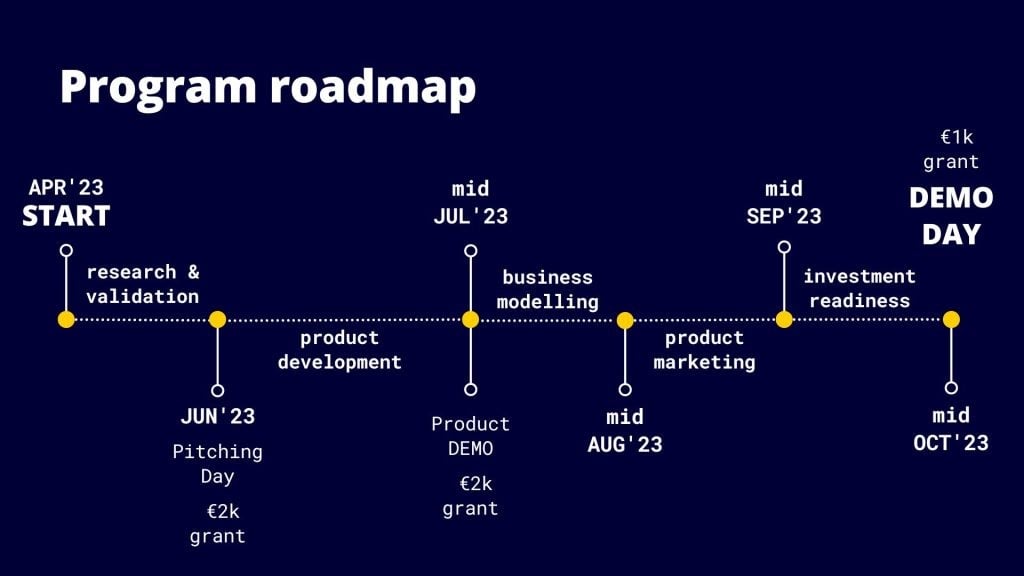
Who is the program targeting?
We are addressing the program to first-time founders who have a problem they want to solve, an idea for a solution, or a prototype. We had a few exceptions where they had a product built and launched, but it wasn’t working well, or the sales base wasn’t growing fast. And we saw potential there to make improvements.
What makes the incubator suitable for founders from Romania and the rest of the Southeast European region?
First, there is no communication barrier – all our classes are in English. We have trainers coming from outside Romania who are non-Romanian speaking people. Second, the location is advantageous because Oradea sits in the heart of CEE. Every year, we have the Unchain Fintech Festival conference that we host together with our partners.
Another advantage is conferred by the validated operators and entrepreneurs that we partner with for the program. They are there to work with you to develop your startup. We have operators who have 10-15+ years of developing products and are organizing three-day workshops where you can sign up with zero preparation and end up with all the planning you need to start your business. Some of the entrepreneurs we bring have at least one exit from a tech startup.
Then, there is also the connection we have with external ecosystems, which we are currently working on. We have people in the Baltics, Norway, and the UK and contacts in the US.
What have been your results and takeaways from the latest edition?
Our biggest takeaway from the second cohort was that we validated our process. The first was just a trial to see what entrepreneurs needed and what we needed to do, and we learned a lot. We changed 80% of the curriculum for the second cohort, and we were happy to see that the process got validation. We had a hackathon at the beginning of the incubation period, and people came to see what the vibe was like and take a shot at building something. After six months, they already had an MVP, talking with investors for the first round and preparing to launch.
We have 17 alumni and have an open discussion with three startups from the two cohorts to invest in them. We have previously invested in three startups from the first cohort. Another takeaway for us was an excellent understanding of the target market.
A year ago, there were around 20 startups in Oradea. How has the ecosystem evolved in the past year?
Some of them are discontinued, which often happens in the startup ecosystem. However, seven new startups launched in 2023. In terms of verticals, SaaS is the king for now. We also had a lot of marketplaces coming towards us, but only a few are growing. Another one is medtech, and we already had four other teams looking to build medtech startups in our previous research and validation stage. The problem with medtech is it’s hard to get the business model and the first clients, especially if you’re addressing public hospitals.
Another interesting fact was that , three out of the seven startups launched in Oradea in 2023 did not go through our incubator – we know the founders and have helped them, but they didn’t formally follow the program. Maybe it wasn’t the right timing for them. But this is something we want to see happening in Oradea because we don’t want to control everything. We are here to impact, inspire, and help people launch their startups in whatever way is suitable for them.
What have you noted about the evolution of the Romanian innovation ecosystem during the past few years? What are the founders’ biggest challenges you still see? What are the opportunities?
CEE and Romania are getting more and more attention from Western stakeholders, especially VCs and other partners interested in talking about the startups we build here. The biggest challenges we see are:
- The lack of know-how about growing and scaling in multiple markets;
- The lack of international experience;
- A fragmented region with many small markets that you need to combine to get to the size of one Western market;
- And an unusual market in Romania; so, if your startup is validated in Romania, this doesn’t mean it will work in another country, and vice versa.
Regarding opportunities, one of the biggest is marching on the success stories we have and are building now. I am also happy that the current public administration, especially the current Minister of Research and Development, Mr Sebastian Burduja, who understands very well what we need in order to grow the national startup ecosystem. His team is currently upgrading the legislative framework for investing in startups and establishing private-public partnerships in Romania. We have hundreds of millions of euros available for funding in Romania in the following years.
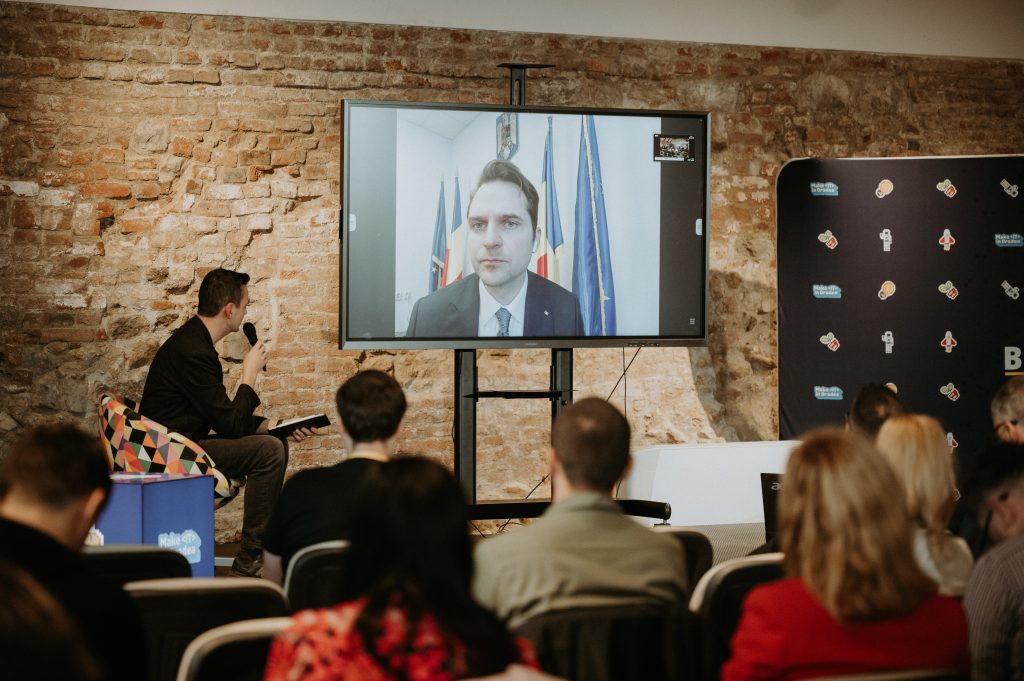
Could you speak about the vital partnerships you have formed at Make IT in Oradea at different levels?”
Partnerships are core to our initiative. We were born through a collaboration between the public and private sectors. The private sector leads the initiative, but the public sector in Oradea supports it by providing the financing part, which is unprecedented in Romania. Within the country, we partner with the ROStartup initiative and work very well with ecosystems from Timisoara, Cluj, Bucharest, and Piatra Neamt, so we know all stakeholders in Romania, we help each other and cross-share mentors and know-how and initiatives. That’s something we strongly believe – we need to grow together. This week, we had a call with ADR Nord-West to do a project together with the other stakeholders in Cluj.
Outside Romania, I recently went to Budapest to set up the ground for partnerships. We already had great discussions with the Untold Stories Conference and Startups Hungary guys. We work with Startup Wise Guys and have mentors established in startup hubs, such as London or Helsinki.
I think these external partnerships will be essential for founders. One thing that would help them greatly is making an experience trip in another ecosystem within a program similar to ours.
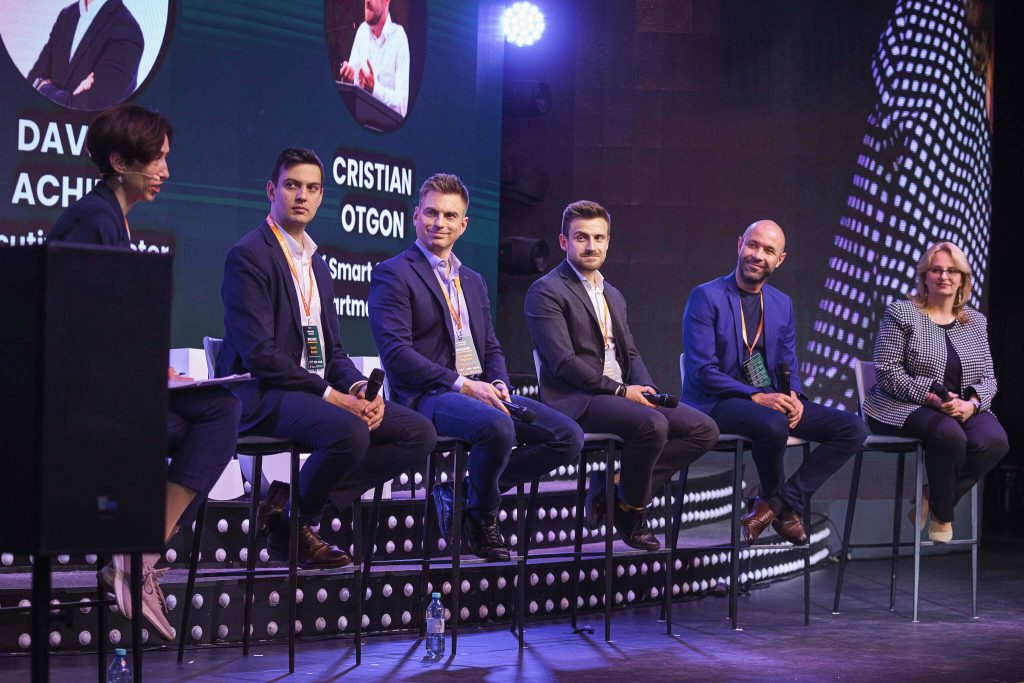
Are there particular ecosystems that you see Oradea learning from?
I mentioned Estonia, for instance, because it’s similar to Romania in that it is a small ecosystem compared to big players in Western Europe. Compared to other cities in the region, Oradea is also small, which gives it a particular disadvantage but also confers the advantage of moving faster, as we’ve shown in the past few years. Two years ago, almost no one knew about the startup ecosystem in Oradea.
I cannot mention other best practices right now because if you look at established ecosystems like Berlin and London, they happened to become startup ecosystems because they were already sizable in market and tech talent. We don’t have many examples of cities with a good strategy for building a startup ecosystem. In this sense, we are among the pioneers.
What hurdles have you faced, and how did you overcome them?
One of the biggest challenges I already touched upon is that no one knew about Oradea or trusted us when we said we wanted to build a startup ecosystem here. And we overcame that by doing what we do and promoting what we already have. We started attending and promoting conferences, talking to the people, not exaggerating, but telling the stories we already had here. We also launched a podcast where we shed light on local success stories, and this started contributing to building awareness and credibility.
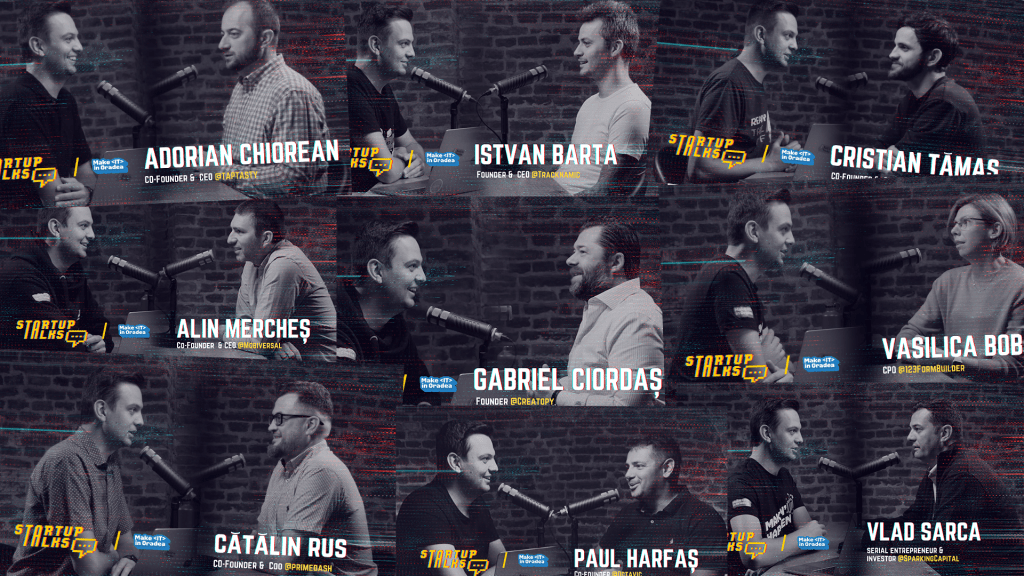
Another big hurdle is the need for more know-how to build an effective startup ecosystem program. There’s no school to teach you how to do it. After the first cohort, we took three to four months to analyze it, research other pre-acceleration and acceleration programs in the region, and infer best practices. We still need to improve and adapt, but we built a solid program during the second cohort.
What impact do you expect to have on the regional ecosystem in the mid-long term?
Our biggest goal in the long term is to inspire other ecosystems that might think, “if these guys in Oradea are doing it, why can’t we?”. Then, we want to develop a solid and sustainable development strategy for the ecosystem. We also want to stop the brain drain in Romania. There is a lot of talent going out, which is excellent, but we want them to return and apply their learnings in the local market. Ultimately, our most significant impact will be economic flourishing for Oradea and Romania because this is what the business environment enables.
